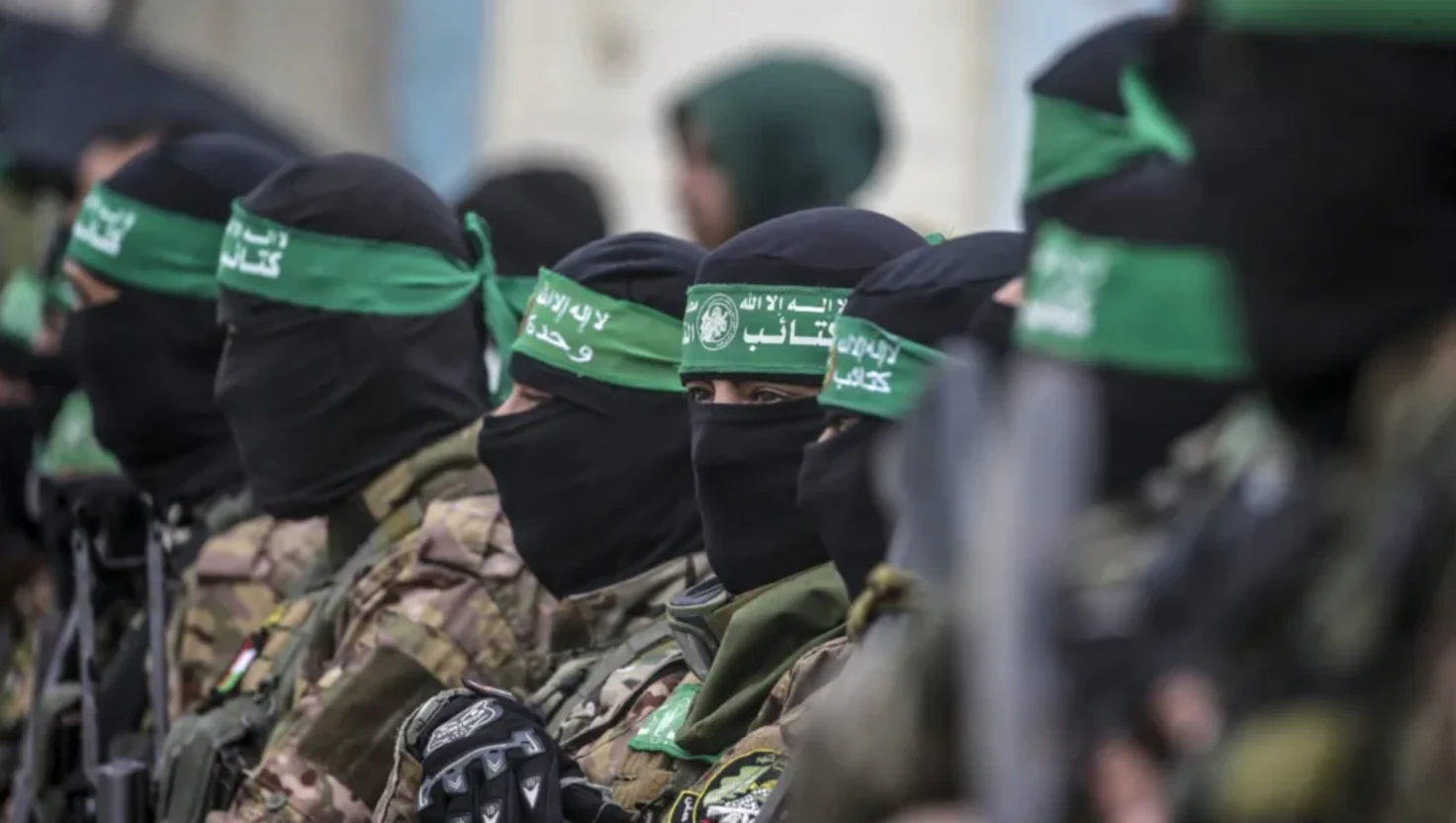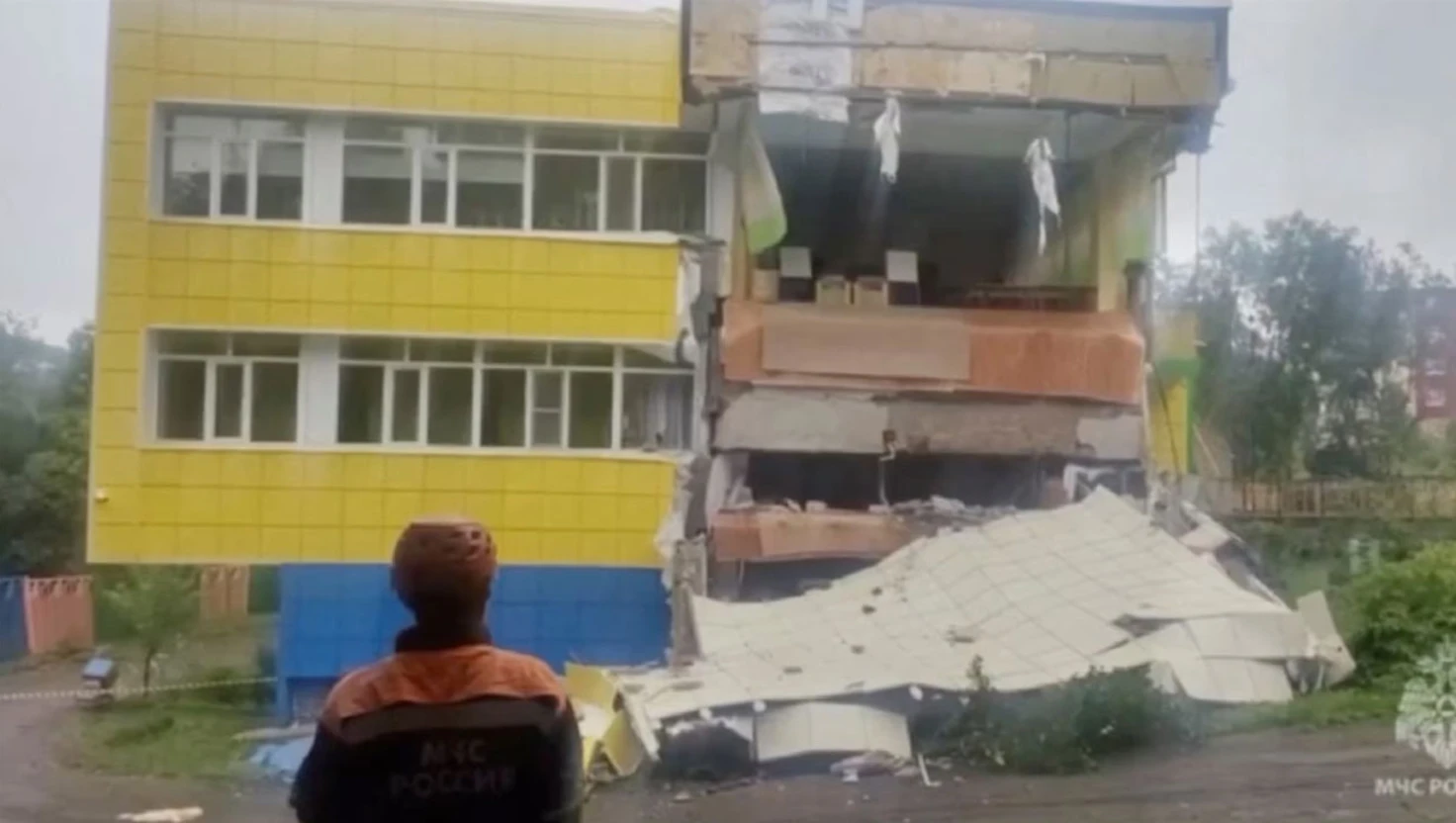Hamas vows not to lay down arms until Palestinian state established

Hamas vows not to lay down arms until Palestinian state established
Hamas refuses to disarm without a Palestinian state, complicating ceasefire talks with Israel as humanitarian conditions in Gaza worsen.
Hamas has reiterated its refusal to disarm unless a sovereign Palestinian state is established, amid ongoing ceasefire discussions with Israel. This declaration comes in response to comments from United States Middle East envoy Steve Witkoff, who suggested that Hamas had shown a willingness to lay down its arms.
Israeli officials regard the disarmament of Hamas as a crucial precondition for ending the ongoing conflict, which escalated significantly following a deadly attack by Hamas on southern Israel on 7 October 2023, resulting in approximately 1,200 fatalities and the capture of 251 hostages.
Ceasefire Negotiations Stalled
Indirect negotiations aimed at achieving a ceasefire and securing the release of hostages have become stagnant. Both Israel and Hamas remain entrenched in their respective positions, with humanitarian conditions in Gaza deteriorating rapidly. Recently, Qatar and Egypt, acting as mediators, supported a joint declaration from France and Saudi Arabia advocating for a two-state solution, which included demands for Hamas to disarm in favour of the Palestinian Authority—a proposition Hamas has categorically rejected.
In a statement issued, Hamas asserted that it cannot compromise its right to “armed resistance” until a fully sovereign Palestinian state with Jerusalem designated as its capital is realised, according to reporting by Reuters.
Israeli Prime Minister Benjamin Netanyahu has maintained that Hamas’ disarmament is a non-negotiable aspect of any peace agreement. He has described the concept of a Palestinian state as a potential threat to Israel's security, arguing that military control over Palestinian territories must be retained by Israel.
Netanyahu has also condemned attempts by various countries, including the UK and Canada, to recognise Palestinian statehood in the wake of the ongoing conflict, labelling such moves as a “reward for Hamas.”
Humanitarian Crisis Deepens
The humanitarian situation in Gaza continues to spiral out of control. Many residents are facing severe malnutrition, with reports indicating that over 60,000 people have died since Israel launched its military response. The Integrated Food Security Phase Classification (IPC) panel, comprising various UN and humanitarian agencies, has warned that a catastrophic famine is unfolding in the Gaza Strip.
The IPC recently characterised the situation as the “worst-case scenario of famine” and has called for a ceasefire to avert further suffering. Eyewitness accounts reveal harrowing conditions, with families struggling to find sustenance amid ongoing violence and chaos.
“I have seen my children lose nearly half their body weight,” shared Jamil Mughari, a 38-year-old resident of Maghazi, illustrating the dire state of food scarcity. Mughari lamented that his family has been displaced multiple times since the conflict's outbreak and now survives on minimal rations of lentils and water, faces enormous challenges in accessing food aid.
The humanitarian crisis has also led to dangerous situations at distribution sites. The Gaza Humanitarian Foundation, which runs food distribution points, faces severe operational challenges, often remaining open only briefly and attracting massive crowds. Reports suggest that civilians have died while attempting to access humanitarian aid.
Responses and Appeals
In light of these distressing realities, families of hostages shared their frustrations. Following the release of a video showing hostage Evyatar David in a concerning state, his family appealed to the Israeli government and the United States for urgent intervention.
During his visit to Israel, Witkoff engaged with families of Israeli hostages, emphasising the need for concerted efforts to resolve the situation and return the hostages safely, rather than pursuing partial agreements.
The Israeli military's campaign in Gaza continues against the backdrop of mounting criticism over humanitarian concerns, with Israel asserting that it allows humanitarian aid to flow into the region and disputing claims of widespread starvation.
The United Nations estimates that at least 1,373 Palestinians have died in search of food since late May, primarily due to violence related to military operations near humanitarian distribution sites. The Israeli Defense Forces maintain that their actions do not intentionally target civilians, attributing chaos near aid sites to Hamas’s provocations.
Prospects for Resolution
As the situation unfolds, both Israeli and Palestinian leadership remain steadfast in their respective positions, complicating the prospects for a peaceful resolution. Analysts assert that without significant diplomatic breakthroughs, the humanitarian crisis will only escalate.
Hamas's commitment to its armed resistance and Israel's steadfast conditions appear to create a challenging scenario for any potential ceasefire. Moving forward, the international community's role in facilitating dialogue and addressing humanitarian needs remains crucial, as desperate appeals for assistance continue to grow louder amidst the unfolding tragedy in Gaza.
Israeli officials regard the disarmament of Hamas as a crucial precondition for ending the ongoing conflict, which escalated significantly following a deadly attack by Hamas on southern Israel on 7 October 2023, resulting in approximately 1,200 fatalities and the capture of 251 hostages.
Ceasefire Negotiations Stalled
Indirect negotiations aimed at achieving a ceasefire and securing the release of hostages have become stagnant. Both Israel and Hamas remain entrenched in their respective positions, with humanitarian conditions in Gaza deteriorating rapidly. Recently, Qatar and Egypt, acting as mediators, supported a joint declaration from France and Saudi Arabia advocating for a two-state solution, which included demands for Hamas to disarm in favour of the Palestinian Authority—a proposition Hamas has categorically rejected.
In a statement issued, Hamas asserted that it cannot compromise its right to “armed resistance” until a fully sovereign Palestinian state with Jerusalem designated as its capital is realised, according to reporting by Reuters.
Israeli Prime Minister Benjamin Netanyahu has maintained that Hamas’ disarmament is a non-negotiable aspect of any peace agreement. He has described the concept of a Palestinian state as a potential threat to Israel's security, arguing that military control over Palestinian territories must be retained by Israel.
Netanyahu has also condemned attempts by various countries, including the UK and Canada, to recognise Palestinian statehood in the wake of the ongoing conflict, labelling such moves as a “reward for Hamas.”
Humanitarian Crisis Deepens
The humanitarian situation in Gaza continues to spiral out of control. Many residents are facing severe malnutrition, with reports indicating that over 60,000 people have died since Israel launched its military response. The Integrated Food Security Phase Classification (IPC) panel, comprising various UN and humanitarian agencies, has warned that a catastrophic famine is unfolding in the Gaza Strip.
The IPC recently characterised the situation as the “worst-case scenario of famine” and has called for a ceasefire to avert further suffering. Eyewitness accounts reveal harrowing conditions, with families struggling to find sustenance amid ongoing violence and chaos.
“I have seen my children lose nearly half their body weight,” shared Jamil Mughari, a 38-year-old resident of Maghazi, illustrating the dire state of food scarcity. Mughari lamented that his family has been displaced multiple times since the conflict's outbreak and now survives on minimal rations of lentils and water, faces enormous challenges in accessing food aid.
The humanitarian crisis has also led to dangerous situations at distribution sites. The Gaza Humanitarian Foundation, which runs food distribution points, faces severe operational challenges, often remaining open only briefly and attracting massive crowds. Reports suggest that civilians have died while attempting to access humanitarian aid.
Responses and Appeals
In light of these distressing realities, families of hostages shared their frustrations. Following the release of a video showing hostage Evyatar David in a concerning state, his family appealed to the Israeli government and the United States for urgent intervention.
During his visit to Israel, Witkoff engaged with families of Israeli hostages, emphasising the need for concerted efforts to resolve the situation and return the hostages safely, rather than pursuing partial agreements.
The Israeli military's campaign in Gaza continues against the backdrop of mounting criticism over humanitarian concerns, with Israel asserting that it allows humanitarian aid to flow into the region and disputing claims of widespread starvation.
The United Nations estimates that at least 1,373 Palestinians have died in search of food since late May, primarily due to violence related to military operations near humanitarian distribution sites. The Israeli Defense Forces maintain that their actions do not intentionally target civilians, attributing chaos near aid sites to Hamas’s provocations.
Prospects for Resolution
As the situation unfolds, both Israeli and Palestinian leadership remain steadfast in their respective positions, complicating the prospects for a peaceful resolution. Analysts assert that without significant diplomatic breakthroughs, the humanitarian crisis will only escalate.
Hamas's commitment to its armed resistance and Israel's steadfast conditions appear to create a challenging scenario for any potential ceasefire. Moving forward, the international community's role in facilitating dialogue and addressing humanitarian needs remains crucial, as desperate appeals for assistance continue to grow louder amidst the unfolding tragedy in Gaza.

US Imposes 25% Tariff on India as Trump Reshapes Global Trade Duties
The United States has announced a 25% tariff on Indian exports starting 7 August, as President Trump unveils sweeping trade duty revisions for nearly 70 countries.
| 2025-08-02

US Deploys Nuclear Submarines After Trump Warns Russia’s Medvedev
The US has deployed two nuclear submarines following remarks by Russia’s Dmitry Medvedev, which President Trump called “highly provocative.”
| 2025-08-02

India has not been great global actor, says US Treasury Secretary
The United States will impose a 25% tariff on Indian imports from 1 August amid stalled trade talks and concerns over India’s ties with Russia.
| 2025-08-01

India 'studying' US President Trump's 25% tariff threat
India's government vows to protect national interests following US President Trump's announcement of new tariffs on Indian goods.
| 2025-07-31

Chile Upgrades Tsunami Warning To The Highest Level After Russian Earthquake
An 8.8 magnitude earthquake off Russia's coast prompts tsunami warnings in South America, Hawaii, and Japan, leading to widespread evacuations.
| 2025-07-31




